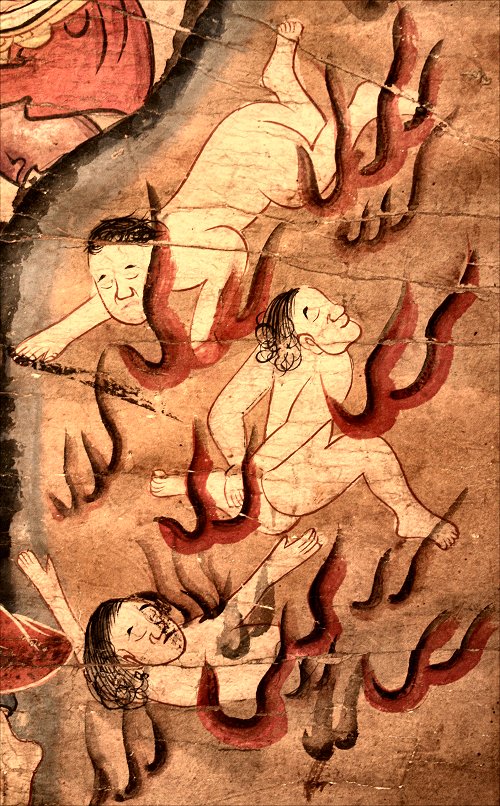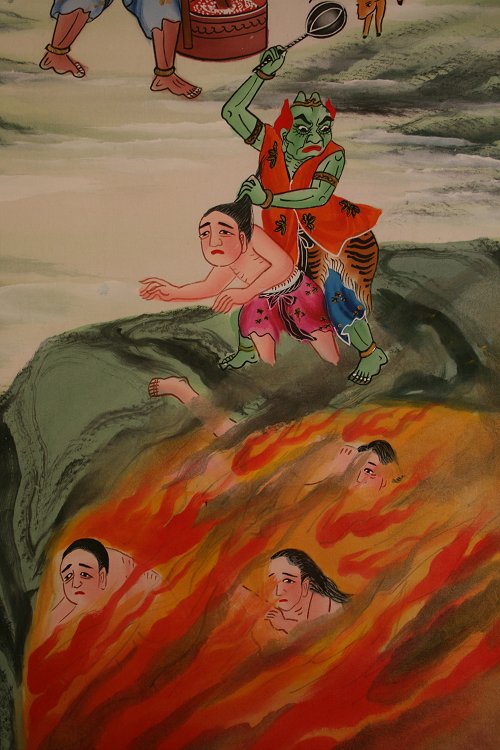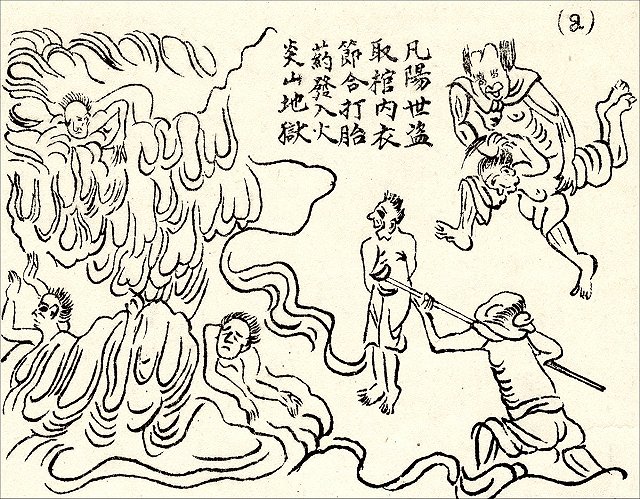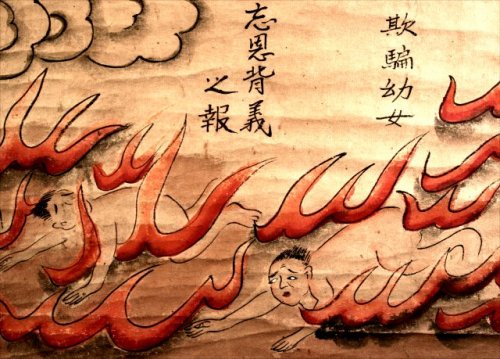
Translations (from right to left)
- Cheated with a young girl
- Recompense for forgetting kindnesses and turning one’s back on rightness
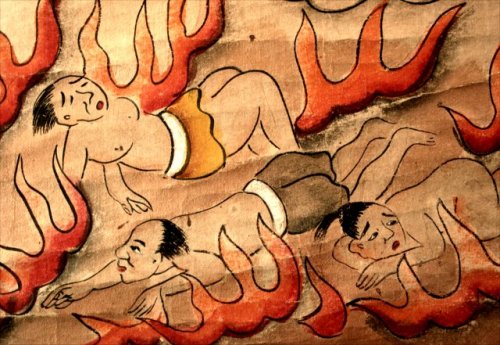
As in other traditions, hell in China could also be associated with a fiery underground realm complete with the horrors of forever being burned alive. Consider the following excerpt from the diary of a Japanese monk traveling China in the summer of 840 C.E., here translated by Edwin O. Reischauer:
From the Terrace of the Saints we went down toward the southeast. Beside the path are many burnt rocks covering the ground. Both square and round, they are in the form of a stone wall which is piled high with burnt stones. This is a place which was turned into a Hell. In ancient times a Prefect of Tai-chou who was violent in character did not believe in karma. He had heard that there were Hells, but he did not believe it. While he was wandering in appreciation [of nature] around the terraces, looking about, he came to this place. Suddenly he saw violent flames consuming the cliffs and rocks and black smoke billowing up to heaven. The burning rocks and fiery coals, glowing brightly, made a wall around him, and devils appeared before him, angry and lamenting. The Prefect was afraid and submitted to the will of His Holiness the Bodhisattva Monjushiri, whereupon the fierce flames disappeared, but their remains are still here today. The burnt rocks are piled up into a wall, which is about fifty feet in circumference and is filled with black stones.
